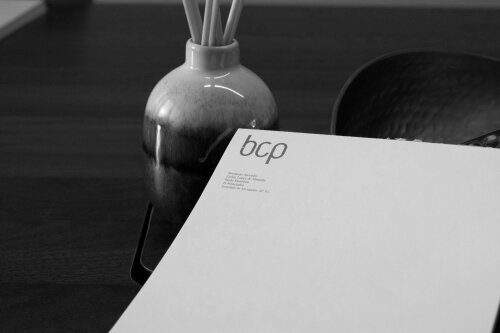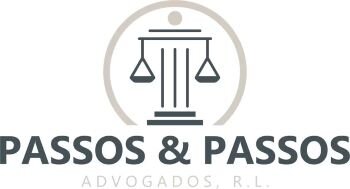Best Communications & Media Law Lawyers in Portugal
Share your needs with us, get contacted by law firms.
Free. Takes 2 min.
Or refine your search by selecting a city:
List of the best lawyers in Portugal
About Communications & Media Law in Portugal
Communications & Media Law in Portugal encompasses the regulation of television, radio, print, and online media, as well as telecommunications services. The legal framework is designed to ensure freedom of the press, promote market competition, regulate content, and protect consumer rights. It is governed by both national legislation and European Union directives, reflecting Portugal's commitment to maintaining an open and fair media landscape.
Why You May Need a Lawyer
Individuals and businesses may seek legal advice in Communications & Media Law for a variety of reasons. Legal representation is often necessary when dealing with regulatory compliance, intellectual property rights, defamation and libel cases, commercial agreements related to media content distribution, privacy issues, and digital rights management. A lawyer specializing in this field can provide guidance on navigating the complex legal requirements and protecting your legal rights.
Local Laws Overview
In Portugal, key legislation related to Communications & Media Law includes the Press Law, the Television and Radio Broadcasting Laws, and the Electronic Communications Law. These laws are complemented by the General Data Protection Regulation (GDPR) and other European Union directives. The regulatory body for media and telecommunications is the Autoridade Nacional de Comunicações (ANACOM), which oversees compliance and enforces regulations to ensure fair market practices and consumer protection.
Frequently Asked Questions
What are my rights regarding freedom of expression in Portugal?
Freedom of expression is a constitutional right in Portugal, but it may be subject to limitations to protect other rights and interests such as privacy, public order, and national security.
How is media content regulated in Portugal?
Media content is regulated by laws that ensure compliance with ethical standards, protect minors, and prevent hate speech and incitement to violence. ANACOM oversees these regulations.
What should I do if I believe a media outlet has defamed me?
If you believe you have been defamed, you can file a lawsuit against the media outlet. Consulting a lawyer specialized in media law can help you assess the strength of your case.
How are advertising practices regulated?
Advertising in Portugal is overseen by legal frameworks that require honesty and prohibit misleading practices. The Código da Publicidade sets out rules for various types of advertising.
What are the rules for telecommunications companies?
Telecommunications companies must comply with the Electronic Communications Law and are regulated by ANACOM, which ensures competition, service quality, and consumer rights protection.
How does the GDPR affect media companies in Portugal?
Media companies must comply with the GDPR by ensuring that they process personal data lawfully, transparently, and securely, providing individuals with control over their data.
What are the legal consequences of pirating media content?
Pirating media content is illegal and can result in civil and criminal penalties, including fines and imprisonment. Legal advice should be sought if you are accused of piracy.
How are journalists’ rights protected?
Journalists in Portugal are protected by Press Law, which ensures freedom of the press while outlining responsibilities and ethical obligations.
What is required to obtain a broadcasting license?
Obtaining a broadcasting license requires compliance with technical, financial, and content-related criteria set by ANACOM and other relevant authorities.
Are there specific laws for digital media?
Yes, digital media is governed by laws that address electronic commerce, data protection, and cybercrime, along with relevant EU directives that impact digital content distribution.
Additional Resources
For additional information and support, the following resources can be useful: - Autoridade Nacional de Comunicações (ANACOM) for regulatory guidance - Comissão Europeia for EU directives and regulations - Portuguese Association for Consumer Protection (DECO) for consumer rights - Professional legal associations such as the Portuguese Bar Association for legal advice
Next Steps
If you require legal assistance in Communications & Media Law, consider taking the following steps: 1. Identify specific legal issues you are facing and gather relevant documentation. 2. Consult with a lawyer specialized in Communications & Media Law to discuss your situation. 3. Explore governmental and industry resources to understand your rights and obligations. 4. Consider mediation or arbitration if seeking a resolution outside of court. 5. Follow through with legal proceedings if necessary, along with your legal counsel's guidance.
Lawzana helps you find the best lawyers and law firms in Portugal through a curated and pre-screened list of qualified legal professionals. Our platform offers rankings and detailed profiles of attorneys and law firms, allowing you to compare based on practice areas, including Communications & Media Law, experience, and client feedback.
Each profile includes a description of the firm's areas of practice, client reviews, team members and partners, year of establishment, spoken languages, office locations, contact information, social media presence, and any published articles or resources. Most firms on our platform speak English and are experienced in both local and international legal matters.
Get a quote from top-rated law firms in Portugal — quickly, securely, and without unnecessary hassle.
Disclaimer:
The information provided on this page is for general informational purposes only and does not constitute legal advice. While we strive to ensure the accuracy and relevance of the content, legal information may change over time, and interpretations of the law can vary. You should always consult with a qualified legal professional for advice specific to your situation.
We disclaim all liability for actions taken or not taken based on the content of this page. If you believe any information is incorrect or outdated, please contact us, and we will review and update it where appropriate.
Browse communications & media law law firms by city in Portugal
Refine your search by selecting a city.














